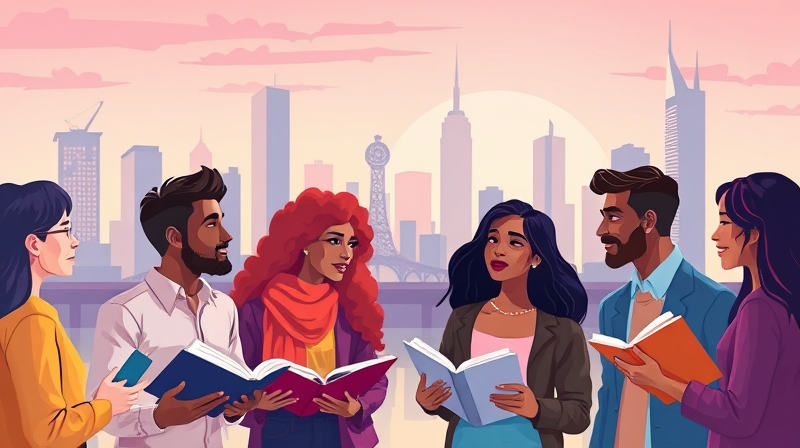In a time when misunderstanding and division seem pervasive, civil dialogue stands as a beacon of hope. It encourages thoughtful debate, nurtures understanding, and offers a way to bridge the widening gap between polarized perspectives. Across campuses and communities, embracing structured conversation techniques can empower individuals to engage in debates that are both constructive and inclusive.
As societies grapple with significant issues—from political polarization to misinformation—the art of listening and speaking with respect has never been more critical. Many educational institutions are rising to the challenge by equipping students with the vital skills needed to navigate sensitive topics. These initiatives not only promote open dialogue but also inspire confidence and empathy.
Transforming Conversations through Structured Approaches
Innovative programs focus on cultivating environments where every voice can be heard. These educational practices emphasize the importance of listening to understand, rather than simply to respond. In doing so, participants learn how to engage respectfully and thoughtfully.
The success of these programs often rests on clear, practical norms for civil discourse. Some of the most effective guidelines include:
- Allowing everyone to share their thoughts before the conversation shifts to responses.
- Maintaining calm and patience, ensuring that discussions do not escalate into arguments.
- Practicing active listening by taking note of the various insights shared.
- Encouraging balanced participation to ensure no single perspective dominates the conversation.
These norms not only support fair communication but also help dismantle barriers that hinder genuine debate, making space for growth and learning.
Beyond these procedural practices, the personal benefits of engaging in civil dialogue are profound. Participants often report feeling more confident in expressing their own opinions and more empathetic towards opposing views. With each conversation, there is a transformative potential that goes beyond the confines of academic discussion—it builds a foundation for stronger, more inclusive communities.
This kind of dialogue is especially important at a time when digital platforms have, at times, amplified misunderstandings rather than fostered conversation. By promoting a return to face-to-face communication and structured interactive learning, educators and leaders alike are paving the way for a more understanding and resilient future.
Furthermore, the skills honed through these dialogue sessions are not confined to political or social arenas—they translate directly into professional life. Whether in STEM fields, business settings, or creative industries, the ability to listen, inquire, and debate constructively is invaluable.
Ultimately, the push for scalable, inclusive civil dialogue mirrors a broader cultural evolution. It is a movement towards research-driven dialogue initiatives, sustained practical training, and the fundamental belief that every voice matters. With continued effort and commitment, such transformative practices have the potential to shape not only well-informed citizens, but also a more harmonious and democratic society.
By embracing the principles of openness, curiosity, and empathy, we empower ourselves to challenge our own assumptions and explore the rich landscape of diverse perspectives. In doing so, civil dialogue not only enriches our understanding of current issues but also inspires us to become better listeners, speakers, and community members.







